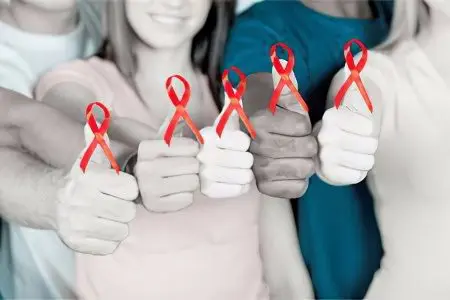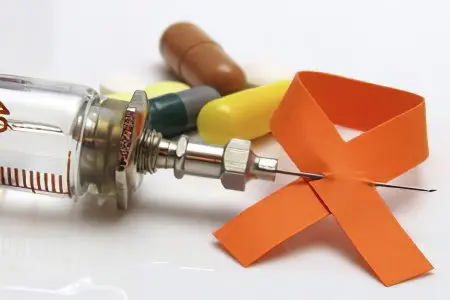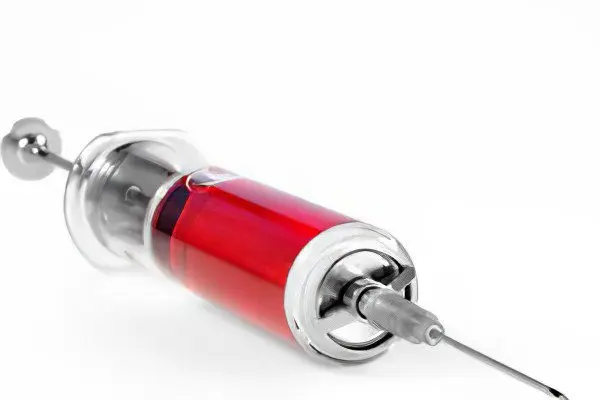Contents
Human Immunodeficiency Virus (HIV) is a widespread worldwide disease that poses a real threat not only to health, but also to human life. By the nature of the spread of HIV, it can definitely be compared with an epidemic. Although modern medicine is able to detect the disease in a timely manner and offer a person high-quality maintenance therapy, it is much better to prevent the virus from entering the body, but in order to prevent this from happening, you need to know the rules for preventing the disease.
General rules for HIV prevention

Although almost everyone knows how to prevent HIV infection, it will never be superfluous to recall these rules again. If you follow them completely, then the risk of infection can be reduced to almost zero.
So, the rules for preventing HIV infection are as follows:
A condom must be used during every sexual intercourse. Moreover, the decision to live together with a sexual partner is not a reason to refuse a condom. It should be a mandatory addition to every sexual intercourse. You can refuse it under the condition of negative tests for HIV and if there is 100% confidence in the fidelity of the partner.
Ideally, injecting drugs should be avoided. But, as a rule, if a person has a drug addiction, he is not able to leave his addiction. Therefore, there can be only one recommendation – to use disposable syringes and needles.
If an HIV-positive man and woman decide to have a child, then the pregnancy should be supervised by specialists. It is quite possible to give birth to a healthy baby, and the chances of this are very high (subject to all medical recommendations). To do this, a woman will need to take special drugs and stop breastfeeding. In addition, more and more HIV-positive couples are opting for in vitro fertilization or purifying sperm in the laboratory.
All health care workers are required to follow the available instructions for sterilizing instruments, and use disposable devices for injection.
Post-exposure prophylaxis of HIV
Post-exposure prophylaxis of HIV involves the implementation of certain manipulations after a risky situation has occurred and there was a possibility of infection.

For a month, a person will need to take drugs that can stop the development of the disease.
Features of post-exposure prophylaxis of HIV:
Medicines that reduce the risk of infection are not available on the market. They are prescribed by a doctor, and they are issued by prescription.
If until 2005 post-exposure prophylaxis of HIV with the help of drugs was available only under the condition of an occupational risk of infection, now almost anyone can receive drugs. For example, if we are talking about unprotected intercourse, a torn condom, etc.
It is impossible to 100% protect yourself from HIV with the help of drugs. However, experts say that the risk of infection with the timely intake of these funds is reduced to 25-30%. Therefore, the use of these drugs is more than advisable.
It should be understood that such drugs are not magic pills for HIV, they are not emergency remedies. You will need to take them for a month. Very often, the doctor prescribes 2 to 4 drugs at the same time.
Post-exposure prophylaxis medications have side effects, so they are not suitable for everyone.
If we consider the most common side effects that can occur after taking post-exposure prophylactic drugs, they are as follows:
Severe headaches;
Chronic fatigue;
Nausea and vomiting.
Names of drugs for post-exposure prophylaxis:
Tenofovir (Viread) is taken once every 1 hours at a dosage of 24 mg.
Raltegravir (Isentress) is taken twice every 2 hours at a dosage of 24 mg.
Emtricitabine (Emtriva) is taken 200 mg once a day.
The dosage and combination of drugs should be adjusted by the doctor. To achieve the desired effect, the drugs must be taken for a month without a single pass and without dose reduction.
HIV prevention at high risk of infection
There are a huge number of cases associated with the risk of infection, in which any person can be. Perhaps someone stepped on a syringe, someone had sex without a condom (forced intercourse is not ruled out), someone is afraid to use public toilets, etc. Do not panic, as this is stupid. You just need to have reliable information about the possible risks of infection and the necessary measures to prevent infection.
HIV transmission and dirty syringe

If a person stepped on a dirty syringe, then you should not worry about infection with the immunodeficiency virus. It is known for certain that the virus dies very quickly in the external environment. However, the risk of infection with other serious diseases remains, so you should seek the advice of a specialist.
If there is a risk of HIV infection, then the first test should be done 6 weeks after the dangerous situation. Then the test will need to be repeated, after 3 months from a possible infection.
It should be understood that no washing of the injection site, no dressings or ointments that have a disinfectant effect can save you from viral infection. All disinfecting or antibacterial drugs only help to prevent the development of inflammation, but nothing more.
Prevention of unprotected intercourse

As a rule, there is a high risk of contracting HIV through casual sexual contact with a stranger and during violent sexual acts. If a similar situation happened, then it is necessary to go to an appointment with an infectious disease specialist as soon as possible. Only a doctor can write a prescription for HIV post-exposure prophylaxis. It is forbidden to correct medical prescriptions on your own!
6 weeks after risky sexual intercourse, an ELISA test should be performed. However, even a negative result is not a guarantee that infection has not occurred. The test will need to be done again after 3 months.
An infectious disease specialist should be contacted no later than 2 days after unprotected intercourse. Only under this condition, post-contact drugs will achieve the desired effect.
Cohabitation with an HIV-infected person
It should be remembered forever that the virus is not transmitted in everyday life, so living together with an infected person does not threaten anything. It is impossible to get infected through dishes, through the use of shared bed linen, through a washcloth or soap. In order for infection to occur, contact between the biological fluids of a healthy and sick person is needed.
However, certain precautions must be observed. For example, it is important to exclude any biological fluids of an infected person from entering an open wound of a healthy person.
If disturbing thoughts do not let go, then every 3 months you can be checked for the presence of infection at the AIDS Center.
Prevention of kissing with HIV
The virus is not transmitted through kissing. However, most people are afraid of infection due to the possible presence of wounds, abrasions or carious teeth in the mouth. Experts unequivocally state that the risk of infection during a kiss is possible when both partners have heavily bleeding wounds in their mouths, and the kiss itself was very deep. In addition, it is necessary that the concentration of the virus in the patient’s blood is over the top.
Thus, we can conclude that kissing an HIV-infected person is not dangerous.
Prevention of HIV while swimming in water bodies

The risk of infection when swimming together in pools and reservoirs with HIV-infected people is completely absent. It has been proven that the virus dies very quickly in water, so even if an infected person has bleeding wounds and bathes in a pool, infection will not occur. And it does not matter that there will be 1 or 100 people with HIV infection in the reservoir and only one healthy person.
However, unprotected sexual intercourse in water is not a guarantee that infection will not occur. Risks remain, and at a fairly high level.
HIV is an incurable disease, so you need to know and strictly follow all preventive measures to prevent infection. If an unforeseen situation occurs, you should not hesitate to contact an infectious disease specialist. Only a doctor can offer effective drugs to reduce the risk of infection.
However, you should not be afraid of all situations indiscriminately, as panic is not the most reliable comrade. For example, you can not refuse salon procedures, the virus is not transmitted through sterile manicure tools, and the masters process them before each procedure, and this is enough.
Doctors unequivocally point out that infection with a virus in everyday life is impossible, since it is absolutely unstable in the external environment. However, you should be careful and be vigilant. Thus, following the rules of HIV prevention, you can definitely prevent infection.









